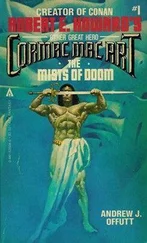The alarm clock buzzed at dawn. I fought exhaustion until the reason for such an early morning released enough adrenaline to melt dry ice. The outside air was dark as dusk. Rita’s preternatural eyes gleamed, anticipating relief. Maternity and paternity possessed the supremely differing points of view of a shaman and a televangelist, a proton and an electron, a quarterback and the football itself. Neither of us could eat breakfast. Mist from the river rose to blend with snow, the earth and sky mixing in air.
I held Rita’s arm as we walked to the car. The sun was beginning to rise, with the moon still hung in the west. I stood between the two companions of the planet, feeling the lure of each, the myth of both. Earth was the broker of life while the moon marked passage of time. I drove slowly, carefully. We didn’t speak. At the hospital an orderly whisked Rita away in a wheelchair, her belly leading the way. Fifteen minutes later a nurse pecked my shoulder.
“Are you the acting father for Mrs. Offutt’s child?”
“The husband.”
She frowned at her clipboard. “This way,” she said.
“What do you mean, acting father?”
“Birth coach.”
I followed her through an elaborate security system to the delivery room, where Rita lay connected to a coil of wires and cords. A blood pressure gauge wrapped her left arm. She wore a belt that monitored the fetus through electrodes fastened to her body. A machine charted contractions with a tiny stylus like a seismograph. The spindly IV dripped Pitocin, a hormone that would eventually trigger labor.
I asked the nurse about alternatives to Pitocin.
“Nipple stimulation sometimes helps but I’m afraid it’s two weeks too late.”
“You’re afraid?” I said.
From down the hall came an anguished howling. The nurse hurried away and I envisioned our neighbor having just seen the two-headed freak she’d emitted from her body. I pulled the deck of cards from our suitcase and offered Rita a cut. We played gin rummy and I won handily. Rita tried to doze. I left for a walk and discovered a herd of stark-eyed men biting lips, nails, and cuticles. One man twitched uncontrollably; another scratched his forearm with the methodic repetition of a lunatic. Conversation consisted of grunts and swallows. Eventually we were all driven away by a sweaty bastard who delivered a monologue on the three previous babies his wife had lost. If this one didn’t come, he was filing for divorce.
I visited the nursery, where eight babies were wrapped like mummies in transparent cribs. A tiny girl lay beneath heat lamps, and I recalled a psychology class field trip to a center for children abandoned to the state. Room after room contained naked idiots. At puberty they had to be taught to masturbate; otherwise they dry-humped furniture and smaller kids. The prize was a hydrocephalic nine-month-old with a head the size of a wheelbarrow, flattened by gravity from lying on its side. The four skull plates were clearly delineated as if floating beneath the surface.
I left quickly. Nurses were joking behind a low barricade that reminded me of a strip club’s protective bar. I wanted a drink. I settled beside Rita to read poetry but was unable to concentrate. While she slept, I took another tour of the labyrinth and peeked in the cesarean room, a regal chamber with the atmosphere of a scrubbed crypt. It was empty save for a shiny metal table beneath a giant bank of lights. In the waiting room I found a spy novel and moved through it with ease.
Four hours later Rita’s contractions increased and I was very hungry. The sandwiches we’d stored in the suitcase a month ago were moldy. While trying to aid her through latent labor, I felt more like a cheerleader than a coach. Mainly I wanted each thirty-second contraction to end so I’d have ten free minutes to read my thriller. A high-ranking official was suspected of being a mole and the protagonist had a gunshot wound in his upper thigh. Rita was moaning. Every half hour a nurse checked her cervical dilation and effacement.
Rita entered the second stage of active labor, and I couldn’t find my flashcards. She squirmed in pain. I was powerless and frustrated, capable only of holding her hand and counting to five as she thrust breath from her lungs in harsh increments. I called a friend and asked for food. An hour later a nurse brought in a duffel bag containing tuna on whole wheat and an airline bottle of whiskey. Between contractions, I ate the sandwich and promptly vomited into the bag, trying to conceal it from Rita. My sensitivity was wasted. She didn’t notice.
The second stage was running long and our doctor dropped by to increase the Pitocin from one drop per minute to two. She asked how I was doing, then patted me on the head. A nurse ran an electrode into Rita’s vagina and fastened it to the baby’s skull. Rita refused medication. She was determined to nurse her baby in a coherent manner immediately following birth. She breathed and grunted, expending more energy than a sumo wrestler. Her eyes stayed shut. I mopped sweat from her face and fed her slivers of ice dipped in juice. Time slid into an oblivion of one-minute cycles that reminded me of the hurricane — breath push rest, breath push rest. The computer graph peaked and troughed in a record of Rita’s work. The room faded into a bathysphere containing the two of us, connected at the palms. Later I learned she’d undergone hard labor for six hours.
Suddenly the room filled with medical personnel summoned by a machine at the nurses’ station. The monitor showed infant distress — each contraction was lowering the fetal heartbeat. A nurse shouldered me aside and dropped a hidden trapdoor in the bed between Rita’s legs. Someone placed a wide-mouthed bucket below. My mouth was dry. The cervix was dilated to the maximum of ten centimeters, fully effaced, soft as dough. A nurse brought a pair of giant gleaming salad tongs on a steel tray. The doctor inserted one, then the other, clipped them together at the handle, and began maneuvering them by feel and memory. Everyone’s brow was wet. I could do nothing but wipe Rita’s face and hold her hand.
The doctor called for a specialist, a jolly fellow with massive forearms. He ran the forceps in and strained until his knuckles whitened, shifted his body slightly, and removed the slimy instruments. He nodded to our doctor and strode away. I imagined a baby with a head shaped like an hourglass. Everyone began talking at once. The doctor crouched in a three-point stance between Rita’s legs and shouted, “Push it out, push it out!” Liquid splatted into the metal bowl.
“Crowning,” a nurse said. “It’s crowning.”
“Heartbeat down,” said another.
“Fetal distress.”
“Episiotomy.”
“Cord around its neck. Cord around its neck.”
I glanced down and saw a dark red sphere emerging from Rita’s abdomen. She was shrieking, I turned my head.
“It’s gone, it’s gone.”
I looked back and what had been the baby’s head had indeed disappeared, sucked back inside. Everyone was yelling instructions. I leaned to Rita’s ear and murmured words that emerged as gibberish.
“Here it comes,” the doctor said. “Crowning, crowning.”
Again I saw the head appear like a turtle’s from a shell, then retreat.
“Danger of asphyxiation.”
“Prepare for cesarean.”
“It’s coming back.”
“Push! Push! Push!”
Through the terror and intensity of the moment, I felt an odd respect for the fetus. After being squeezed through a tight tunnel for a quick view, it had opted for return, prolonging the safety of darkness and food. It was certainly my kid.
“Episiotomy, quick.”
“It’s tearing, it’s tearing.”
“Push, push, push. Here it comes.”
Читать дальше












